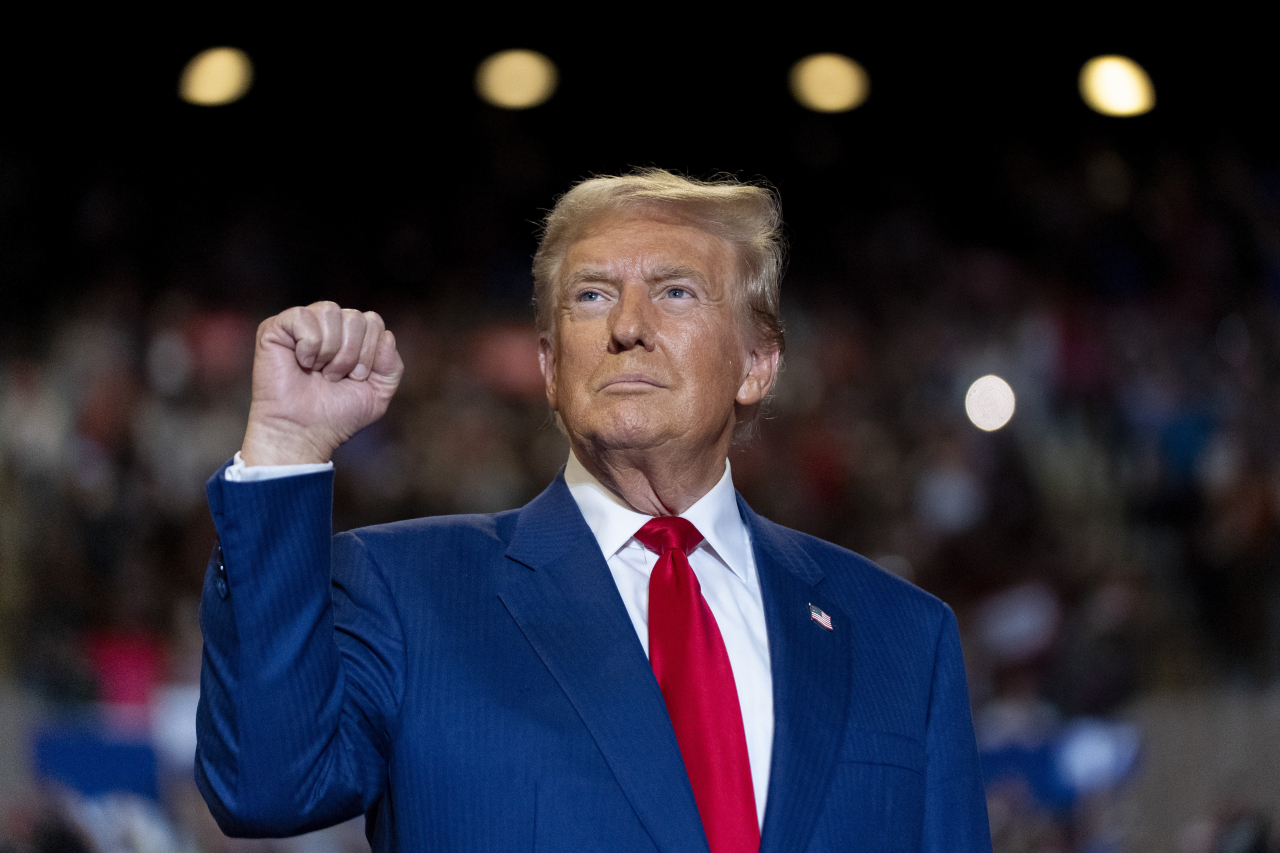 |
Republican Donald Trump pumps his fist as he arrives to speak at a campaign event at Nassau Coliseum on September 18, 2024, in Uniondale, N.Y. (AP) |
Donald Trump’s return to the White House would propel South Korea to reassess fundamentally its alliance strategy, prompting preparations for trading, deal-centered diplomacy tailored to his transactional approach -- in which there seem no exceptions, even for treaty-bound allies like South Korea.
Observers in Seoul warn that Trump’s policies may bring significant challenges and pressures in three key areas: demands to renegotiate the defense cost-sharing agreement for increased contributions from Seoul, higher tariffs on imports to reduce the US trade deficit and intensified pressure on South Korea to bolster the alliance’s role in countering China or adopt a stronger stance against Beijing.
"The Korean Peninsula and the North Korean nuclear issue are not Trump’s primary concerns. His foremost focus is the economy," Kim Heung-kyu, director of the US-China Policy Institute at Ajou University and president of the Plaza Project, a local think tank, told The Korea Herald. "He is likely to push for higher tariffs on all countries and will exert strong pressure on South Korea to significantly increase its share of defense costs. In this process, he may bring various issues to the table, potentially including the withdrawal of US Forces Korea."
Min Jeong-hun, an associate professor of American studies at the Korea National Diplomatic Academy, said that sustaining the durability of the alliance should not pose significant challenges nonetheless, especially given the US' strategic imperative to counter China’s influence, alongside the considerable economic benefits accruing from the bilateral ties between South Korea and the US.
"However, there are concerns about the way the alliance is managed, especially with the potential of renegotiating defense cost-sharing on the horizon. With Trump’s transactional approach to alliances, his return is likely to bring a markedly different approach from that of the Biden administration," Min told The Korea Herald.
Ha Shang-eung, a political science professor at Sogang University, noted that South Korea must prepare for Trump's approach, which aims to undo Biden's policies.
“The issue is that everything we’ve built over the past four years was tailored to Biden’s administration, which, in Trump’s view, makes it essentially void. He’ll likely want a clean slate on all fronts,” Ha said. “If that’s the case, we’ll have to treat it as though we’re starting from square one.”
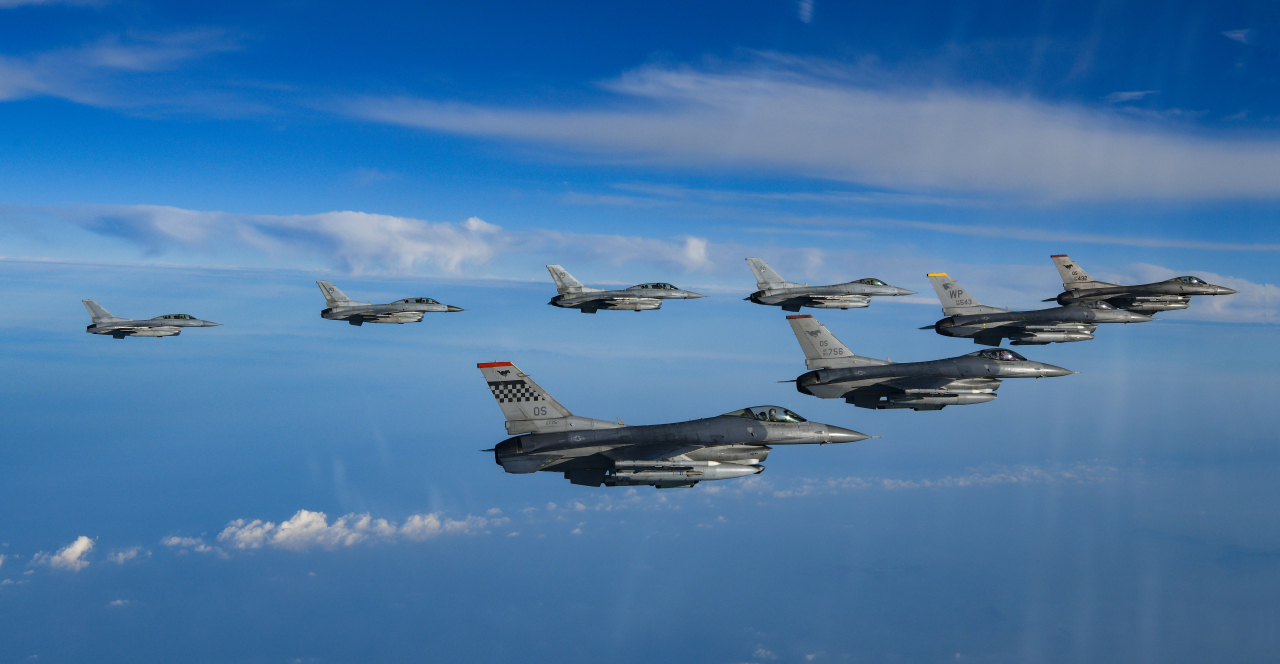 |
South Korea's Joint Chiefs of Staff announced on October 31 that a large-scale joint air drill with the US was conducted in response to North Korea's intercontinental ballistic missile launch. South Korean KF-16 and US F-16 fighter jets are shown in a joint attack formation exercise in this photo provided by the JCS on the same day. (Yonhap) |
Defense cost-sharing
Observers in Seoul concur that Trump’s primary focus, viewed through a transactional lens, would likely be renegotiating the defense cost-sharing agreement.
On the campaign trail, Trump urged South Korea to increase its defense contributions, echoing his criticism of NATO's collective defense. In an October interview with the Economic Club of Chicago, he claimed South Korea would pay up to $10 billion annually under his leadership, calling the country a "money machine."
“Washington is likely to keep urging Seoul to boost its defense contributions, potentially introducing new cost categories -- such as fees for strategic asset deployments and expenses tied to the Nuclear Consultative Group -- to sustain pressure on South Korea,” Kim Hyun-wook, president of the Sejong Institute, told The Korea Herald.
“When Trump returns to office, South Korea will need to prepare a scenario for a give-and-take approach in negotiations," Kim said.
For instance, Japan and South Korea can jointly push Trump to strengthen the Indo-Pacific nuclear umbrella or consider redeploying tactical nuclear weapons -- a request that could be tied to the US demand to increase ally contributions in the Special Measures Agreement.
"That is, when Trump puts forward substantial demands, we must have a strategy to secure our own gains in return. It’s time to consider bold deal-making, ensuring we obtain what we need while offering Trump the contributions he’s after," Kim suggested, pointing to South Korea’s bitter experience in its unsuccessful efforts to secure a defense cost-sharing deal under Trump.
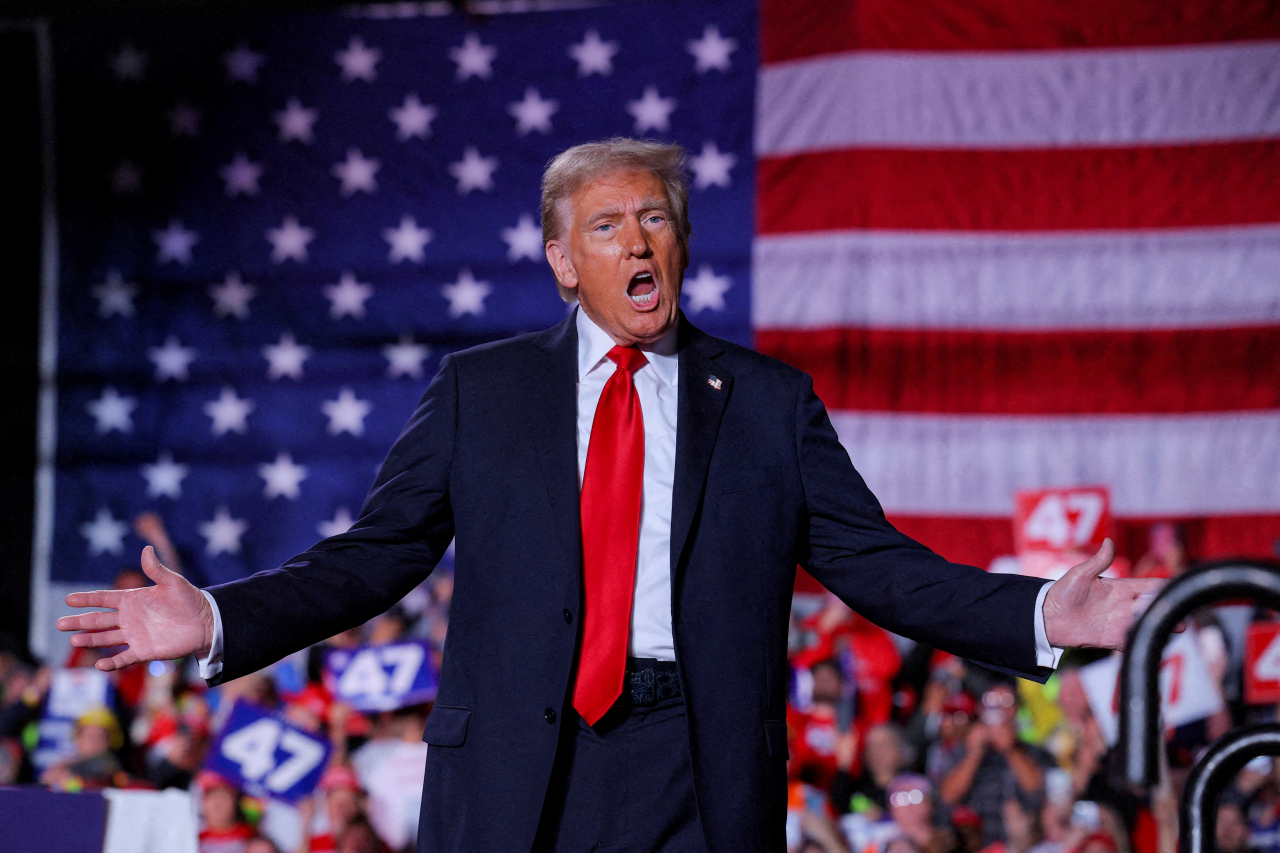 |
Donald Trump, now the U.S. president-elect, attends a campaign rally at Macomb Community College in Warren, Michigan, U.S., November 1. (Reuters) |
The Moon Jae-in administration faced major hurdles in defense cost-sharing talks with Trump, who demanded South Korea increase its contribution to around $5 billion -- over five times the previous amount. Negotiations for the 11th SMA began in 2019 but stalled until the end of Trump’s term over disagreements about South Korea’s increased share.
In October, South Korea and the US reached an early agreement on the 12th SMA, setting defense cost-sharing terms for 2026-2030, more than a year before the current deal’s expiration.
However, the deal may still be subject to change. Unlike South Korea, where the SMA requires ratification by the National Assembly, the US treats the agreement as an executive agreement, bypassing Congress. This situation gives future US presidents the authority to revoke or renegotiate the agreement.
However, Min Tae-eun, a research fellow at the Korea Institute for National Unification, cautioned that South Korea’s willingness to make concessions in negotiations with Trump -- particularly trading security commitments for economic benefits to the US -- without thoroughly assessing his underlying motives, would be an unwise approach.
“When it comes to issues like defense cost-sharing and extended deterrence, Trump’s underlying intention seems more focused on using these as bargaining chips to pressure the South Korean government,” she observed. “These are urgent issues for South Korea, and Trump is acutely aware of their importance to us. He’s likely to leverage this urgency to secure other interests, particularly economic gains, from South Korea.”
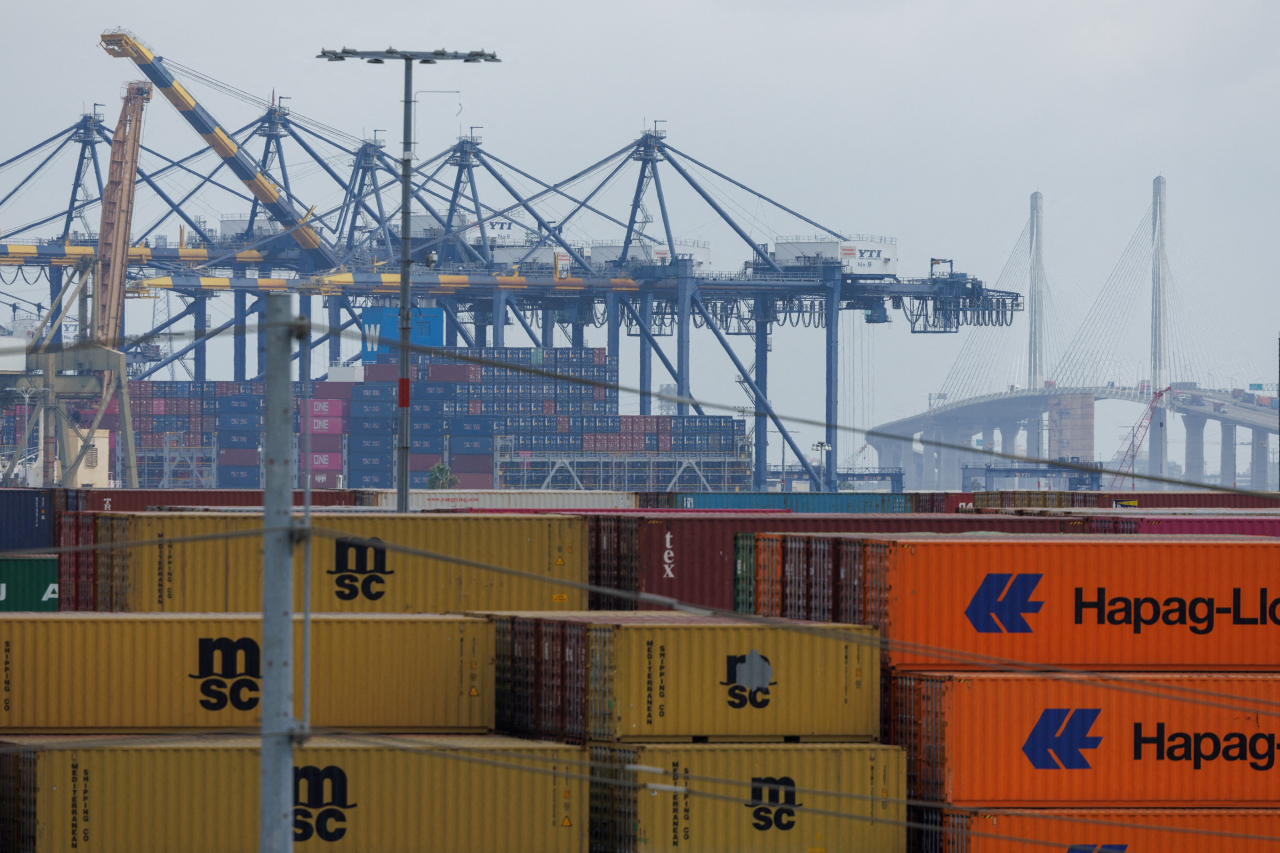 |
Shipping containers are shown at the Terminal 1 Container Terminal at the Port of Los Angeles in Wilmington, California, U.S., October 17, 2024. (Reuters) |
Concerns over tariffs
Observers in Seoul noted that Trump’s push for higher tariffs could take precedence over security matters. During his campaign, he proposed a 10 to 20 percent tariff on all imports and a 60 percent tariff specifically targeting Chinese goods, aligning with his "America First" policy to reduce the US trade deficit.
"The primary concern now centers on tariffs. Trump’s focus on reducing the trade deficit signals an intention to weaponize tariffs, and, unlike Harris, he makes little distinction between allies and nonallies in this regard,” Min Jeong-hun said.
“As South Korea maintains a trade surplus with the US, Trump could leverage this as grounds to increase pressure on Seoul, potentially heightening trade barriers to achieve his deficit-reduction goals."
Korea International Trade Association data shows that South Korea's trade surplus with the US rose from $16.6 billion in 2020 under Trump’s first term to $22.7 billion in 2021 and $28 billion in 2022, reaching a record $44.4 billion last year. With a surplus of $39.9 billion from January to September this year, another record appears likely.
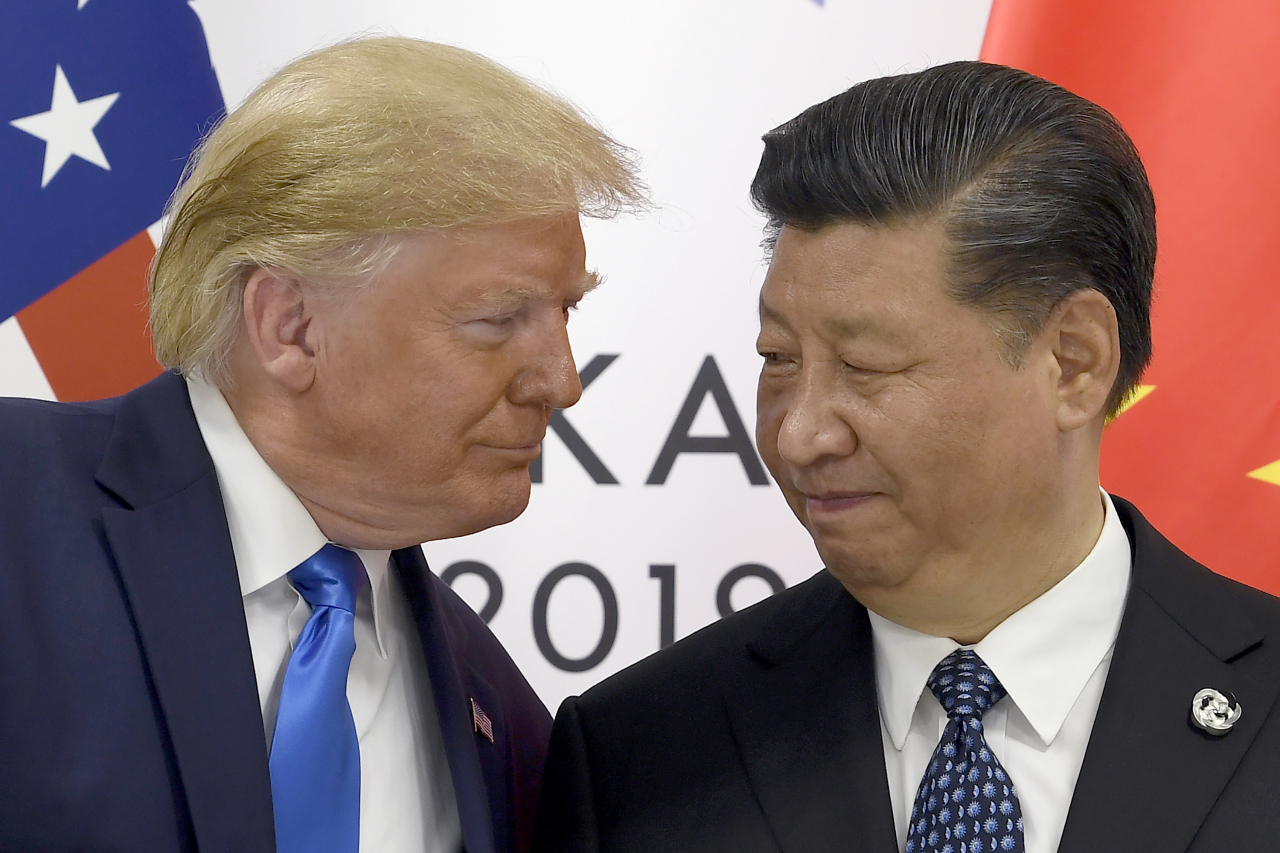 |
US President Donald Trump (left) meets with Chinese President Xi Jinping during a meeting on the sidelines of the G-20 summit on June 29, 2019 in Osaka, Japan. (AP) |
Countering China
Kim Hyun-wook suggests that a potential Trump administration could increase pressure on South Korea to "use the US-South Korea alliance to counter China."
Choo Jae-woo, a professor of Chinese Studies at Kyung Hee University, noted, “We can anticipate growing demands to take a definitive stance on issues like Taiwan and China. With the US primarily focused on countering China, it will likely press us to clarify our position.”
Choo said if Trump adopts a more hard-line approach toward China, South Korea may inevitably face considerable costs.
“There is an expectation for allies to shoulder a greater share of the financial burden, including calls for allies to take on a larger role through increased arms purchases and contributions.”
On the other hand, there is an alternative scenario in which Trump and his administration see bolstering alliances in defense and diplomacy as crucial to countering China.
"In that case, the value of the US-South Korea alliance could further increase,” Choo said. “Additionally, from an economic security perspective within the so-called global supply chain restructuring, there are two main pillars: promoting onshoring while also working with allies to shape supply chains in ways that favor their own interests.”
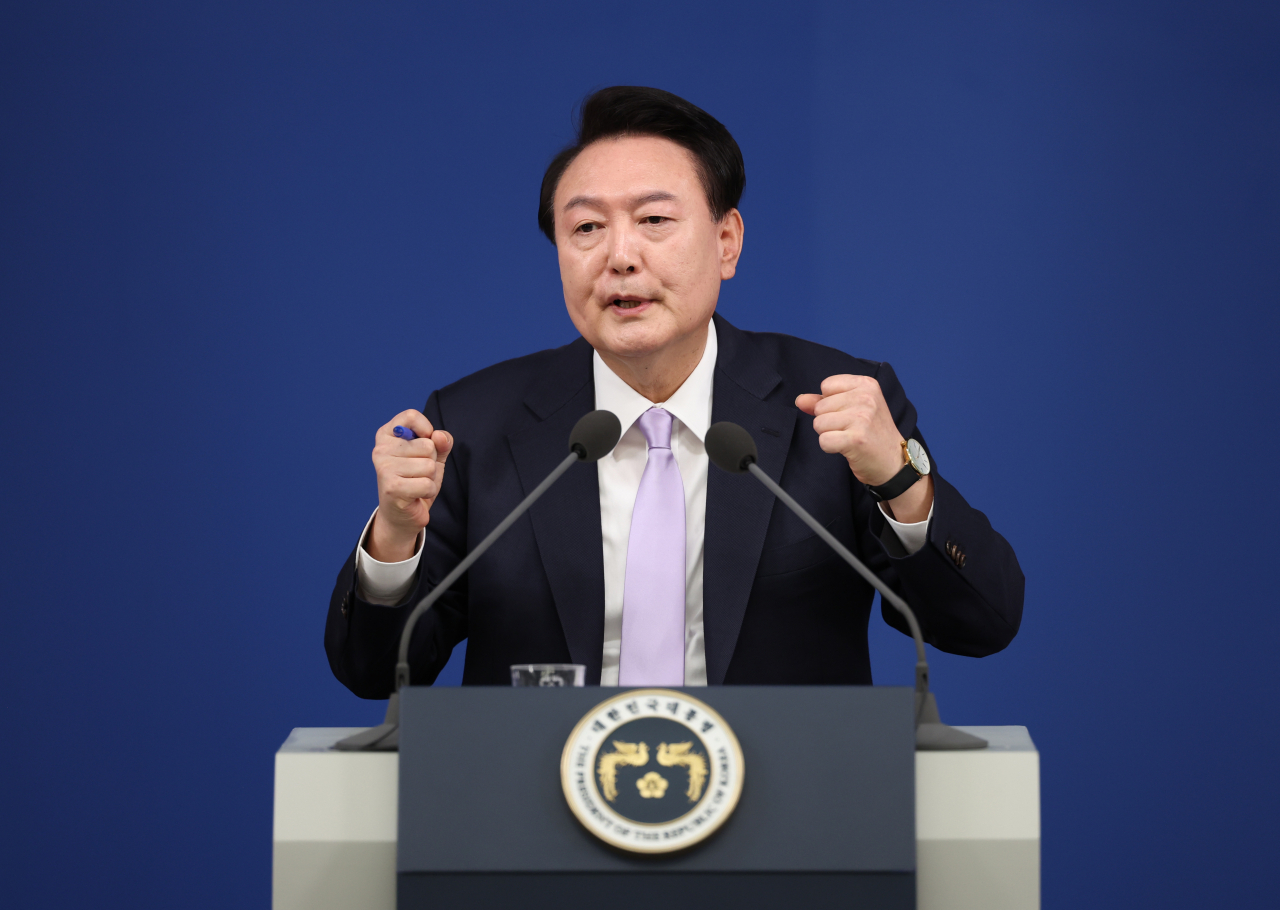 |
President Yoon Suk Yeol speaks during a press conference at the presidential office in Seoul on Thursday. (Yonhap) |
Seoul’s strategy
Experts advise South Korea to adopt a flexible, issue-specific approach to navigating the US alliance under Trump, recognizing that American pragmatism will prioritize transactional interests over close-knit alliances, with little expectation of preferential treatment.
Min Jeong-hun noted, “Trump, in particular, is deeply committed to fulfilling his promises as president, with a strong track record of following through on policies he’s championed.”
“This makes it essential for us to closely track his key priorities, identify which are most likely to materialize, and prepare tailored responses across sectors and issues."
However, Min explained each issue comes with its own dynamics: the US under Trump tends to approach alliances transactionally, but trade policies often reflect both presidential and broader American interests, which do not always align.
“Given this, we need to adopt a flexible, issue-specific approach to respond effectively. Unlike the Biden administration, Trump is likely to foster a less close-knit relationship with allies, so a case-by-case, interest-driven approach may prove more effective in safeguarding our interests,” the professor explained.
Min Tae-eun emphasized, “If we approach a leader like Trump with a mindset of trading security for economic gains, we risk being easily swayed."
The researcher noted the irony in the cases of Israel and Ukraine -- the largest beneficiaries of US support. Despite their significant reliance on American security, both countries maintain a degree of independence from Washington’s directives.
“This illustrates two key points. First, that US hegemony is waning, and second, that heavily supported countries like Ukraine and Israel recognize this shift and are leveraging it strategically,” she continued. "This holds particular significance for the Korean Peninsula, as South Korea provides the US with substantial reciprocal benefits, more so than Ukraine or Israel."
Min Tae-eun also underscored that "A pragmatic approach rooted in 'America First' will be reinforced — and it’s not because of Trump alone."
"We need to grasp this shift with clear-eyed realism and a sense of bitter clarity; it’s a prevailing trend that transcends Trump or Biden. This is an irreversible course for the US," in her view. "Our focus should be less on who takes office and more on understanding that America is firmly committed to this path," according to her.
"Looking ahead, we must recognize that American pragmatism won’t afford Korea any special exceptions; there’s little reason to expect preferential treatment."





![[Herald Interview] How Gopizza got big in India](http://res.heraldm.com/phpwas/restmb_idxmake.php?idx=644&simg=/content/image/2024/11/20/20241120050057_0.jpg)

